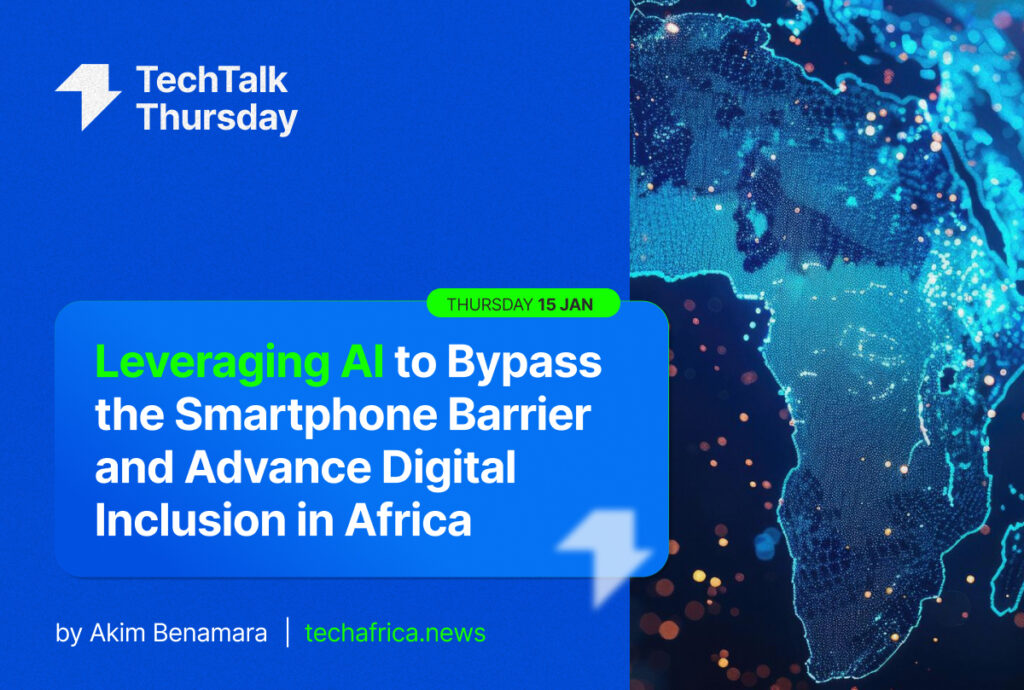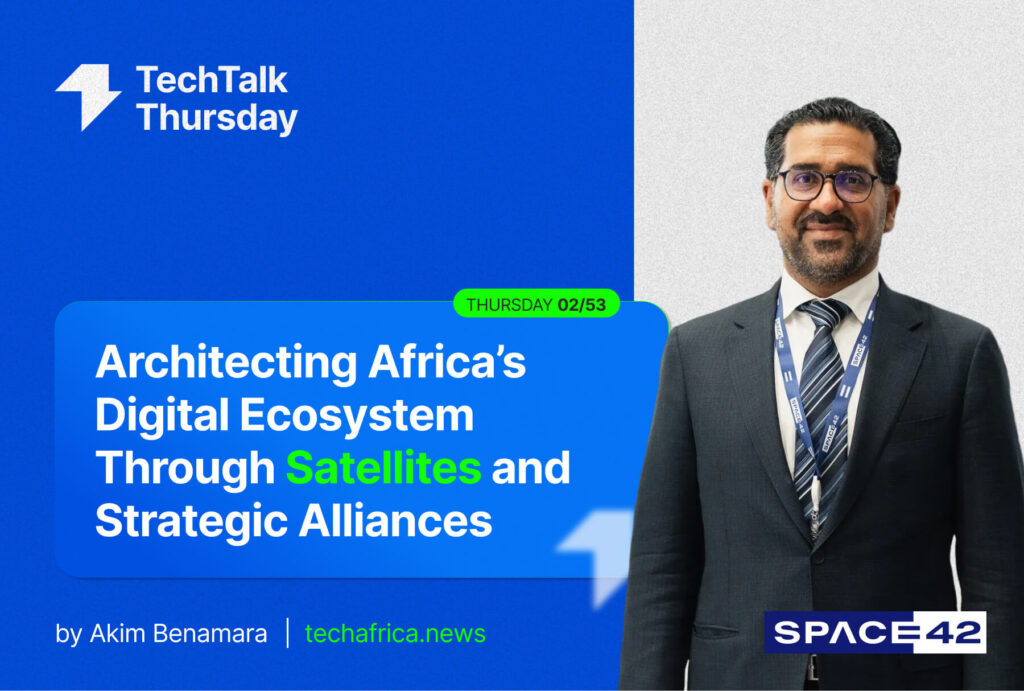Connectivity as the Foundation of the New Global Digital Economy
Africa has bold ambitions for its digital future—ambitions rooted not just in catching up, but in leapfrogging into a new era of innovation, economic opportunity, and inclusive growth. The continent stands at a pivotal moment, on the cusp of a digital revolution that could redefine everything from commerce and education to healthcare and governance.
But that future rests on a single, critical foundation: Connectivity. Not just any connectivity—but widespread, affordable, resilient infrastructure that leaves no one behind.
At GITEX Africa 2025, I had the honor of moderating a dynamic panel discussion on —“Connectivity as the Foundation of the New Global Digital Economy”—alongside distinguished industry leaders: Abderrahmane Mounir (Maroc Data Center), Dr. Mactar Seck (United Nations Economic Commission for Africa), Dr. Oscar Ondo (GITGE), Dr. Emmanuel Manasseh (International Telecommunication Union), and Roque Lozano (Nokia). Together, we unpacked where Africa’s digital infrastructure is thriving—and where critical gaps remain.
In this TechTalk Thursday edition, we delve deeper into that vital conversation—breaking down key takeaways, spotlighting bold solutions, and exploring how Africa can build the kind of connected future that truly transforms lives.
Connectivity Is Not Just a Tech Issue
It’s a Development Imperative
At its core, the panel underscored that connectivity is far more than just a technological issue; it is the very foundation upon which the digital economy is built. Africa’s journey to digital transformation rests heavily on the backbone of connectivity—but not just any connectivity. The panelists agreed: what we need is meaningful, inclusive, and sustainable infrastructure that reaches all corners of the continent.
Connectivity is more than laying fiber optic cables or deploying mobile towers. It’s about: Digital sovereignty, Affordability, Energy (Without reliable electricity, any talk of 5G or AI is premature), Political will (Policies must prioritize connectivity as a national and continental development goal) and Inclusive design (Rural and underserved areas must be intentionally included in infrastructure planning). Connectivity isn’t just the first step toward digital transformation—it is the step on which everything else depends, from education and healthcare to jobs and innovation.
Dr. Seck described connectivity as “the highway of the digital economy.” Without it, the services meant to improve people’s lives can’t move forward. And the statistics back him up: Only 38% of Africa’s population is connected—compared to a global average of 60%—and in rural areas, it drops to 23%. This highlights the fundamental need for robust and reliable infrastructure to support the digital ecosystem. Without this foundation, Africa risks being left behind in the global digital race.
On the other hand, Lozano described connectivity as the “trunk of the digital car”—you can upgrade everything else, but without a large enough trunk, you can’t carry what you need. He stressed the importance of end-to-end, trusted connectivity platforms that combine both technical execution and business viability.
“There is no alternative to digital, and no digital will be possible without a trusted, affordable connectivity platform that enables full digitalization.”
– Roque Lozano, SVP, Nokia
Addressing the Affordability Gap
Bridging the Digital Divide
However, the path to universal connectivity is not without its obstacles. One of the most significant challenges is affordability. Dr. Seck also pointed out that data costs in Africa can be up to 5x times higher than in Europe or America, creating a significant barrier to access for many. This disparity effectively excludes a large segment of the population from participating in the digital economy. Addressing this affordability gap is crucial to ensuring that the benefits of the digital revolution are shared equitably across the continent. Solutions may include innovative pricing models, government subsidies, and increased competition among service providers.
“The cost of data will be around five times the cost in Europe or America. We need to look at the issue of cost in Africa, of data. We need to look at the cost of involvement of the private sector in building the infrastructure on the continent. It means we have three actionable orientations where African countries should focus.”
– Dr. Mactar Seck, Chief of Technology and Innovation, United Nations Economic Commission for Africa
Electricity, Taxation, and the Reality on the Ground
Dr. Ondo, speaking from the perspective of hard infrastructure, was blunt: you can’t talk about connectivity without talking about electricity. Over 600 million people in Africa still lack access to electricity. He also highlighted the risk of importing unrealistic digital benchmarks. Africa’s digital roadmap, he said, must be shaped by its own definitions of success, grounded in real needs—especially in underserved areas.
“When you look at the African continent, over 600 million people still lack access to energy. And yet—we want to build AI, we want to develop IoT, nanotechnology, blockchain. All of these require energy. That’s why we must work at a regional level. The infrastructure is already there in parts, including broadband access. We also have national energy pools. The key now is to assess, region by region, how we can develop the energy systems needed to power innovation and growth.”
– Dr. Oscar Ondo, CEO, GITGE
Then came the question of taxation. Both Dr. Manasseh and Dr. Seck challenged the short-term approach many governments take by taxing telcos and connectivity services as cash cows. This, they argued, discourages investment, drives up consumer prices, and stifles growth. Instead, countries should optimize taxation in a way that supports infrastructure development and digital inclusion. Finding the right balance between taxation and investment is essential to fostering a thriving digital ecosystem.
“Connectivity cannot wait. Because 70% of the indicators of the SDGs depend on connectivity. We have 169 indicators across the 17 SDGs and 119 of them will be accelerated by using connectivity. So, delaying connectivity means you are delaying the whole achievement of the SDGs. Also, telecom in general is a capital-intensive business. But there’s a need not to tax connectivity to the extent that it becomes a burden to invest in covering countries, extending the network, and building sustainable and reliable infrastructure. I think governments need to rethink heavily taxing their telcos—especially the connectivity.”
– Dr. Emmanuel Manasseh, Regional Director for Africa, International Telecommunication Union (ITU)
Political Will and Policy: Setting the Stage for Progress
Again and again, the panel circled back to a central barrier: political will. Africa doesn’t lack strategies or frameworks—the African Digital Transformation Strategy, the Africa AI Strategy, and the Africa Digital Compact already exist. The challenge is implementation.
The panelists agreed that connectivity must be prioritized at the highest levels of leadership. Dr. Manasseh argued forcefully that “there must be a strong political will and support from the highest level” to create an environment conducive to investment and innovation. He elaborated on the specific actions that governments should take, including fostering public-private partnerships, promoting infrastructure sharing, and avoiding duplication of investment. He also stressed the importance of governments leading by example through the adoption of digital technologies. But the roadmap is clear. What’s needed now is commitment, cooperation, and collective action.
A Holistic Infrastructure Approach: Domestic, International, and Data Hubs
Mounir emphasized the importance of a holistic approach to infrastructure development, encompassing domestic connectivity, cross-border connectivity, and data centers. He argued that these three elements should not be fragmented but rather developed in a coordinated manner to ensure optimal efficiency and sovereignty.
He highlighted the need to move away from data dependency on other countries and establish robust data hubs within Africa to ensure low latency and data sovereignty. He stressed that “in order to have the perfect recipe, it should not be fragmented. Ideally, you want them to go together, domestic, international, and data hubs.” This integrated approach is crucial for building a resilient and self-sufficient digital ecosystem in Africa.
Defining Africa’s Digital Identity: A Tailored Approach
Moreover, the discussion highlighted the need for Africa to define its own digital agenda, tailored to its unique needs and priorities. Dr. Oscar Ondo cautioned against blindly adopting global trends, emphasizing the importance of developing solutions that are relevant to the specific challenges and opportunities facing the continent. This includes prioritizing investments in foundational infrastructure, such as electricity and education, while strategically leveraging emerging technologies to address key developmental goals. Africa’s digital future should be shaped by its own values, priorities, and aspirations.
The Power of Community: Engaging Local Stakeholders
Lozano offered a valuable reminder of the importance of community engagement in broadband initiatives. By empowering local communities to participate in the deployment and distribution of broadband services, it is possible to create more sustainable and impactful solutions. This bottom-up approach can help to ensure that connectivity projects are aligned with the needs and priorities of the communities they serve.
The Bottom Line: Connectivity Can’t Wait
This panel didn’t sugarcoat the challenges. But it also didn’t leave the audience without hope. Africa has talent, demand, and frameworks. What it needs now is alignment—between policy, infrastructure, regulation, and investment.
Connectivity isn’t just the first step in Africa’s digital transformation—it is the step. And the time to act isn’t down the road. It’s now. The time for action is now.






